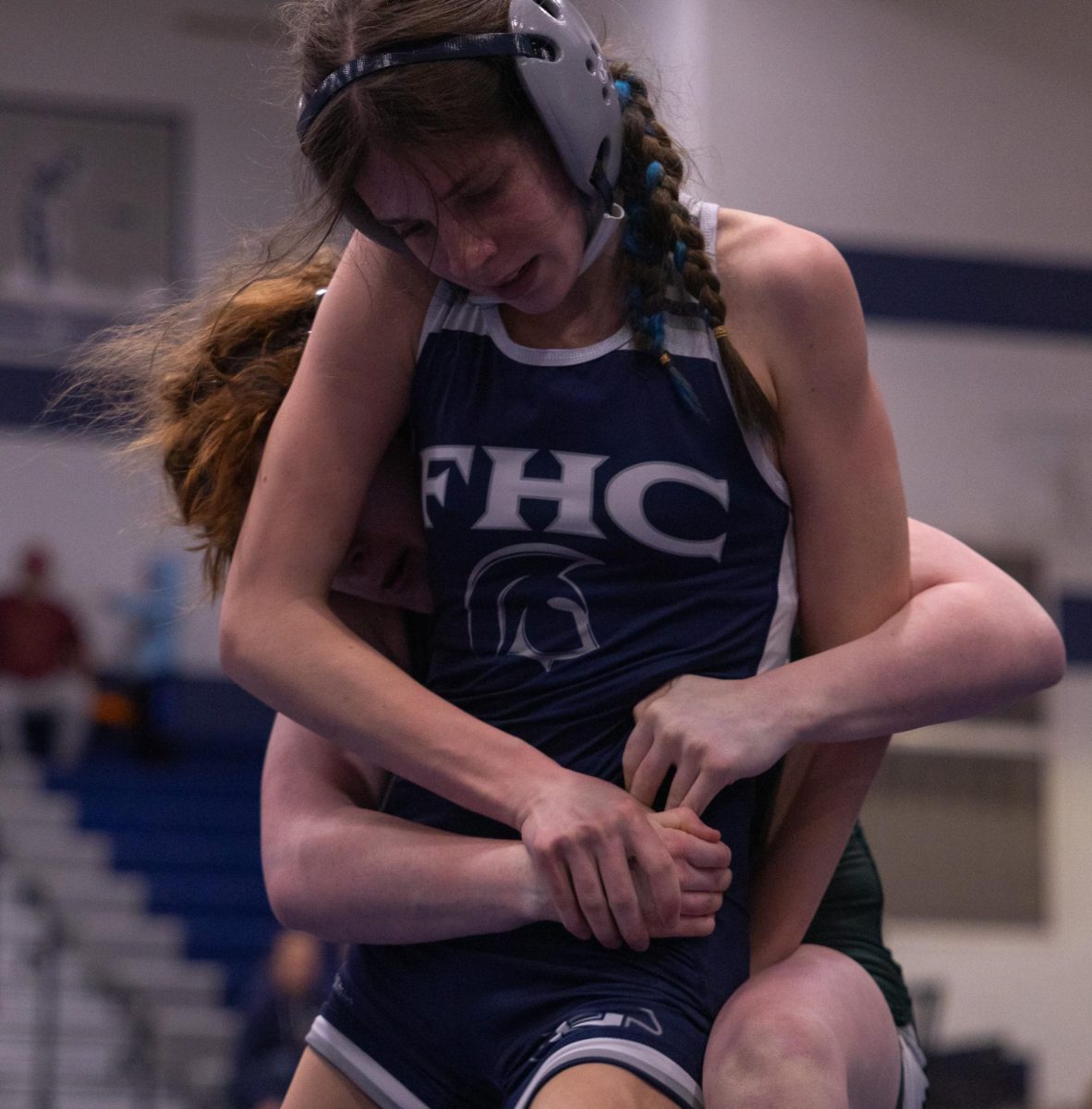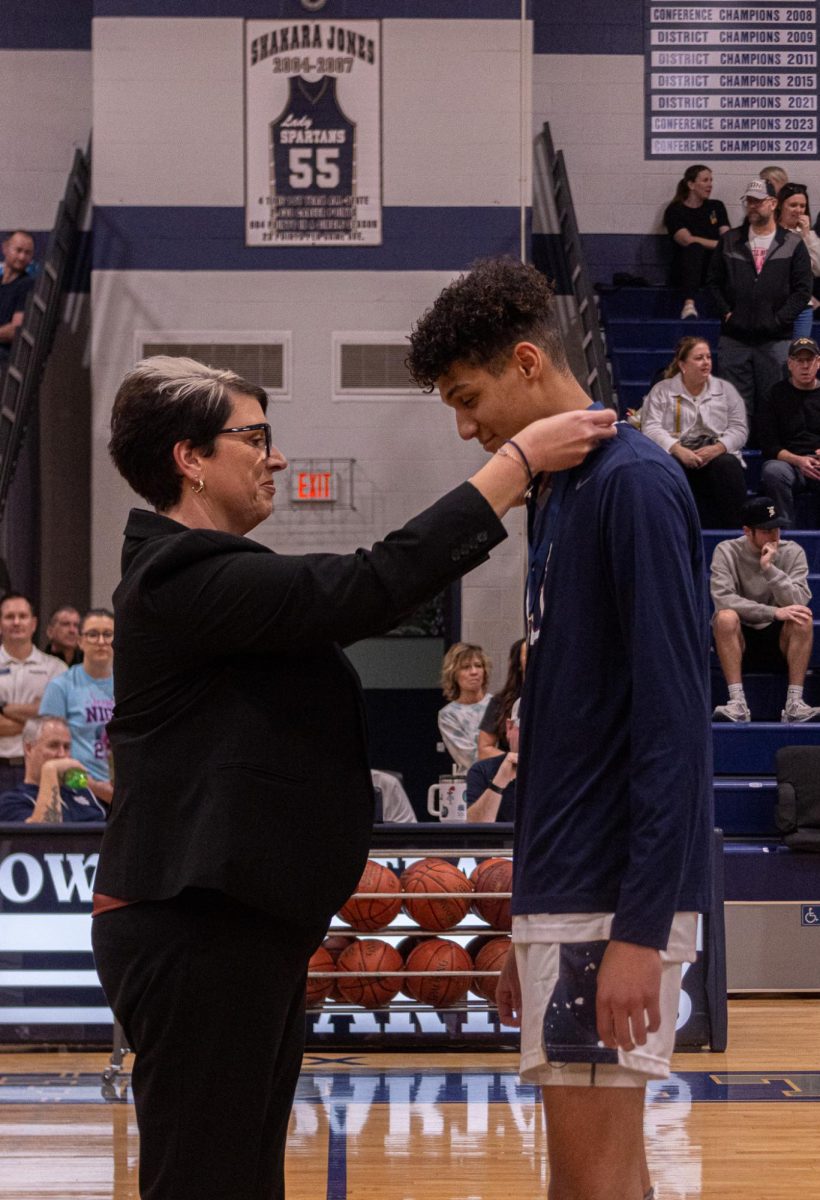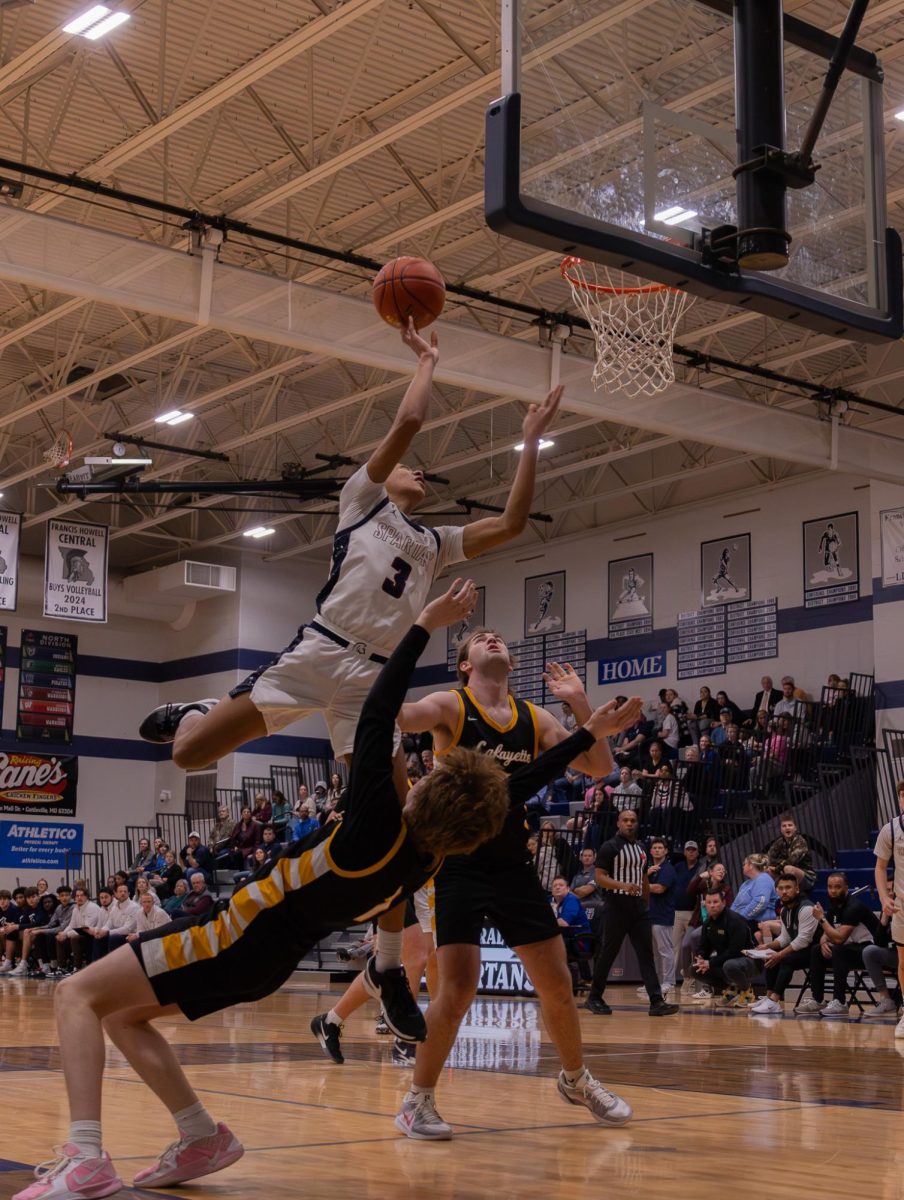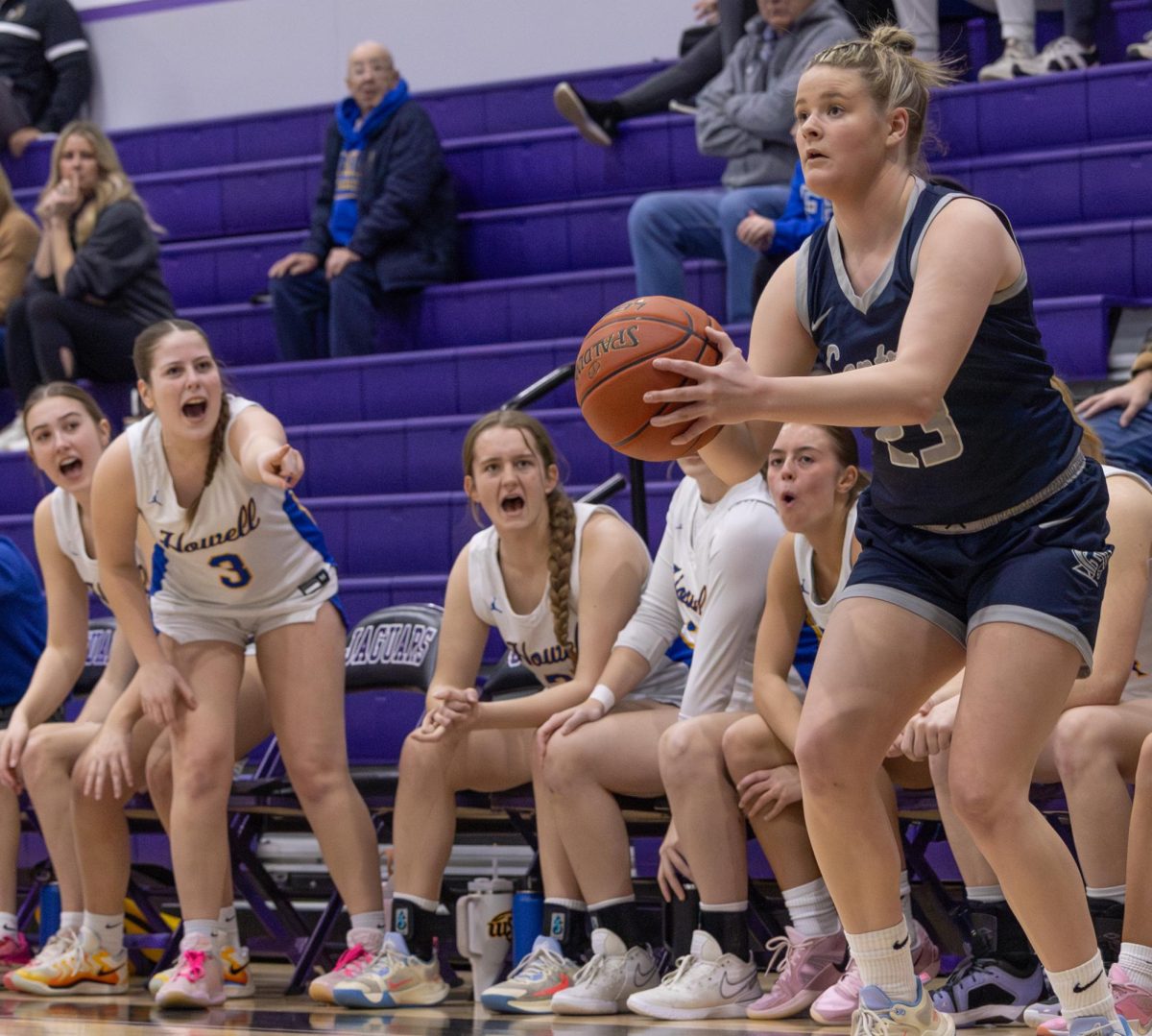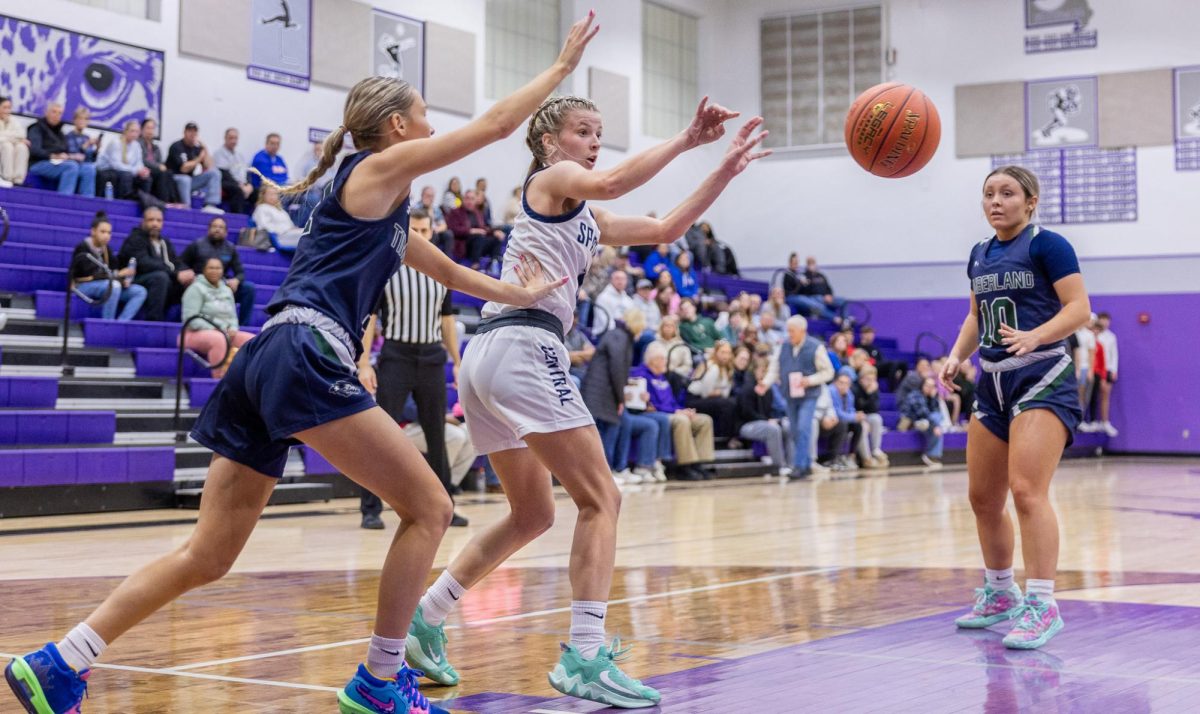Once sophomore Makenzee McPherson, the 100-pound varsity girls’ wrestler, hits the mat, she instantly feels the pressure and tension her teammates hold on her while they watch. Like most student-athletes, she understands that positive and negative pressure is placed on athletes. She notices that the positive pressure stands out more and sometimes helps her perform better.
Student-athletes believe they are under a lot of pressure and tension, and coaches and players who portray toxic behaviors could also put tension on the team. Lately, during the winter sports season, athletes have noticed a change in pressure on their teams.
“Having a big crowd makes me perform better because if I am down in a match, I would look over and see my friends and family cheering me on, boosting my energy,” McPherson said.
Varsity basketball player sophomore Danny Maher thinks mood and mental health can affect athletes. He believes you should be playing sports if you are in the correct state of mind to perform your best.
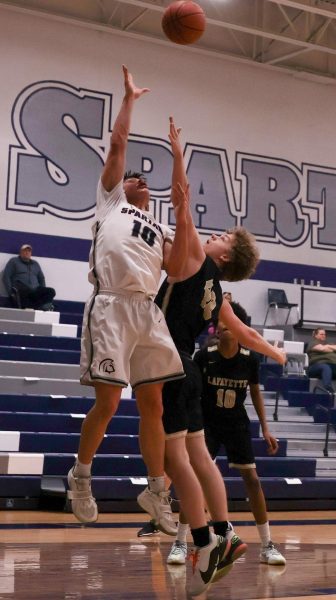
(Kamryn Twitty)
“[Mood] affects my performance… if I’m angry, I’ll play a lot more aggressively…whereas if I’m in a good mood, I would just have fun and goof around,” Maher said.
Sophomore Mikaela Bond, a varsity girls basketball player, notices that you must ignore the toxicity placed on your team; otherwise, your team will perform badly. Yet, she’s motivated to work harder when she plays under pressure.
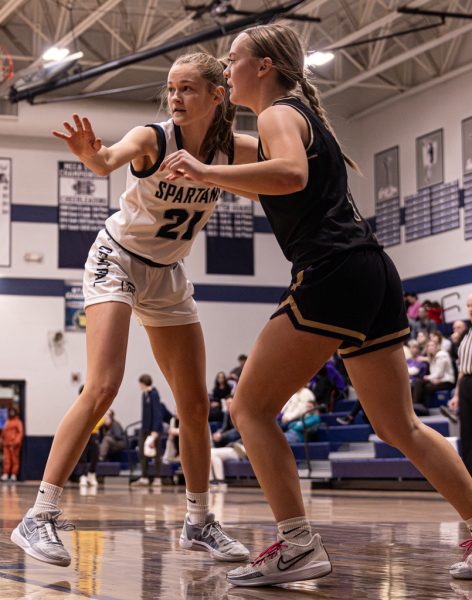
“[Toxicity] definitely [affects the team] even if it’s one person, it just messes with the chemistry of the team…When your teammate’s [playing] off, it can spread to others,” Bond said.
All three athletes feel pressure is put on them, and sometimes they can’t reach the standards. Both Bond and Maher agree they put the most pressure on themselves, yet McPherson feels differently.
“My dad puts a lot of pressure on me…he always tries to give me pep talks before I wrestle,” said McPherson.
McPherson explains that her dad’s pep talks affect her in two ways. When he isn’t there before or during the match, she almost doesn’t feel prepared, but the pep talks sometimes don’t help.
Another part of the wrestling experience is weigh-ins; wrestlers have to maintain a certain weight depending on their level. McPherson explains that the controlled weight puts pressure on the entire team. When the wrestlers have a match coming up, they typically don’t eat or drink for the day to maintain weight.
“[Wrestling] affects my everyday life in school because you can’t eat or drink water, especially if you’re over [the weight limit],” McPherson said.
All three student-athletes feel the other players on the team can help with the tense atmosphere, but being on varsity puts a lot of pressure on these underclassmen since they are typically the youngest on their team. All three of these student-athletes hold more pressure than other teammates due to their age and team; carrying the weight on their backs of the higher standards can affect our players as well. Sometimes, the players need a break because of the stress levels they experience during the games.
“Most times, I need to walk away from everyone after a bad match to calm down,” McPherson said.




